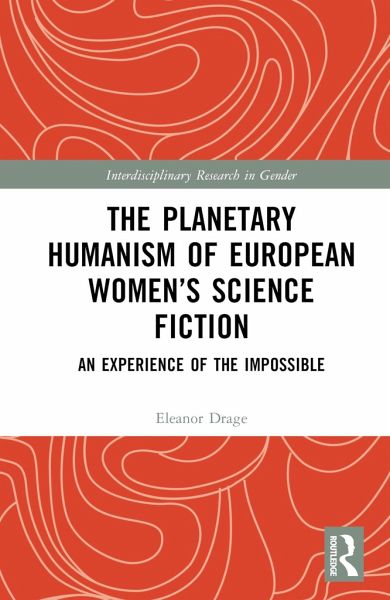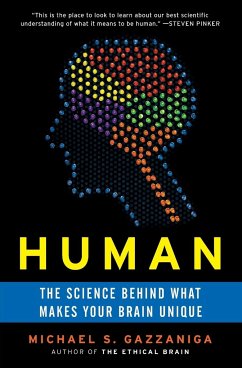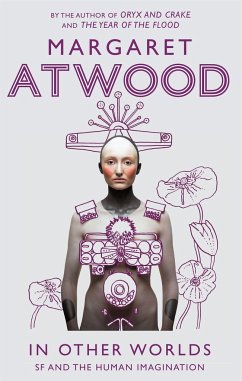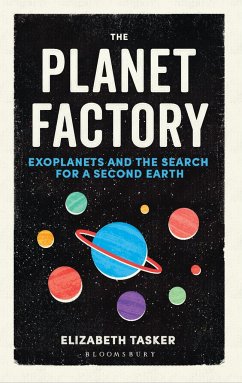
The Planetary Humanism of European Women's Science Fiction
An Experience of the Impossible
Versandkostenfrei!
Versandfertig in 6-10 Tagen
154,99 €
inkl. MwSt.
Weitere Ausgaben:

PAYBACK Punkte
77 °P sammeln!
The Planetary Humanism of European Women's Science Fiction argues that utopian science fiction written by European women has, since the seventeenth century, played an important role in exploring the racial and gender possibilities of the outer limits of the humanist imagination.This book focuses on six works of science fiction from the UK, France, Spain, and Italy: Jennifer Marie Brissett's Elysium; Nicoletta Vallorani's Sulla Sabbia di Sur and Il Cuore Finto di DR; Aliette de Bodard's Xuya Universe series; Elia Barcelo's Consecuencias Naturales; and Historias del Crazy Bar, a collection of st...
The Planetary Humanism of European Women's Science Fiction argues that utopian science fiction written by European women has, since the seventeenth century, played an important role in exploring the racial and gender possibilities of the outer limits of the humanist imagination.
This book focuses on six works of science fiction from the UK, France, Spain, and Italy: Jennifer Marie Brissett's Elysium; Nicoletta Vallorani's Sulla Sabbia di Sur and Il Cuore Finto di DR; Aliette de Bodard's Xuya Universe series; Elia Barcelo's Consecuencias Naturales; and Historias del Crazy Bar, a collection of stories by Lola Robles and Maria Concepcion Regueiro. It sets these in conversation with key gender and critical race scholars: Judith Butler, Rosi Braidotti, Gayatri Chakravorty Spivak, Paul Gilroy, and Jack Halberstam. It asserts that a key concern for feminism, anti- racism, and science fiction now is to seek inventive ways of returning to the question of the human in the context of increasing racial and gender divisions.
Offering unique access to contemporary and historical women writers who have mobilised the utopian imagination to rethink the human, this book is of use to those conducting research in Gender Studies, Philosophy, History, and Literature.
This book focuses on six works of science fiction from the UK, France, Spain, and Italy: Jennifer Marie Brissett's Elysium; Nicoletta Vallorani's Sulla Sabbia di Sur and Il Cuore Finto di DR; Aliette de Bodard's Xuya Universe series; Elia Barcelo's Consecuencias Naturales; and Historias del Crazy Bar, a collection of stories by Lola Robles and Maria Concepcion Regueiro. It sets these in conversation with key gender and critical race scholars: Judith Butler, Rosi Braidotti, Gayatri Chakravorty Spivak, Paul Gilroy, and Jack Halberstam. It asserts that a key concern for feminism, anti- racism, and science fiction now is to seek inventive ways of returning to the question of the human in the context of increasing racial and gender divisions.
Offering unique access to contemporary and historical women writers who have mobilised the utopian imagination to rethink the human, this book is of use to those conducting research in Gender Studies, Philosophy, History, and Literature.














